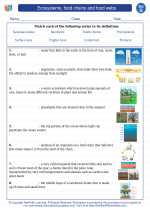Ecosystems, food chains and food webs -> power
Power in Science
Power in science is the rate at which work is done or the rate at which energy is transferred or converted. It is a fundamental concept in physics and is measured in watts (W). One watt is equal to one joule of energy being transferred per second.
Formula for Power
The formula to calculate power is:
Power (P) = Work (W) / Time (t)
Where:
- Power (P) is measured in watts (W)
- Work (W) is measured in joules (J)
- Time (t) is measured in seconds (s)
Examples of Power
Power is a crucial concept in understanding various phenomena in the natural world. For example, the power generated by a car engine can be calculated by measuring the work done in moving the car over a certain distance in a specific amount of time. Similarly, the power output of a light bulb can be determined by the amount of energy it consumes and the time it takes to consume that energy.
Study Guide
Here are some key points to remember when studying power in science:
- Understand the definition of power and its units of measurement (watts).
- Be familiar with the formula for calculating power: Power (P) = Work (W) / Time (t)
- Practice using the formula with different examples and scenarios to reinforce your understanding.
- Explore real-world applications of power, such as in machines, electrical devices, and natural phenomena.
- Consider the relationship between power, work, and time, and how changes in these variables affect the overall power output.
By grasping the concept of power and its applications, you will have a strong foundation in understanding the transfer and conversion of energy in the physical world.
.◂Science Worksheets and Study Guides Seventh Grade. Ecosystems, food chains and food webs

 Activity Lesson
Activity Lesson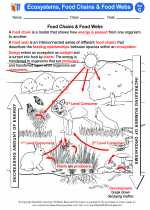
 Worksheet/Answer key
Worksheet/Answer key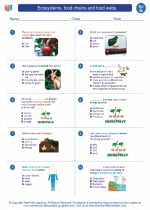
 Worksheet/Answer key
Worksheet/Answer key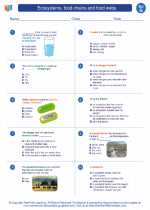
 Worksheet/Answer key
Worksheet/Answer key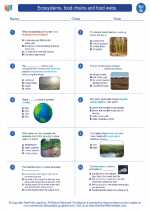
 Vocabulary/Answer key
Vocabulary/Answer key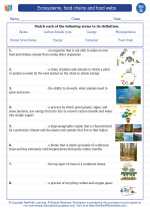
 Vocabulary/Answer key
Vocabulary/Answer key
 Vocabulary/Answer key
Vocabulary/Answer key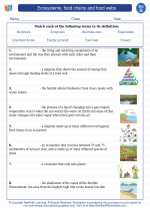
 Vocabulary/Answer key
Vocabulary/Answer key
 Vocabulary/Answer key
Vocabulary/Answer key